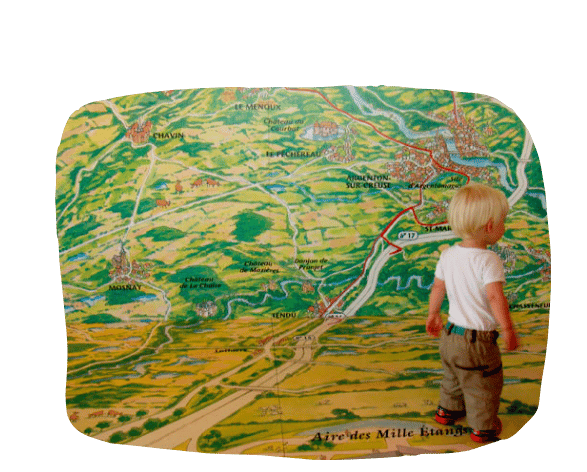The Map is not the Territory
The metaphor of the map and the territory is a fascinating way to illustrate the relationship between democracy and representative democracy.


Would you like to have more say in the laws that affect your life?
Following this analogy, we could consider democracy as the "map," a conceptual and ideal representation of a political system based on citizen participation, collective decision-making, and equality of rights.
In this sense, democracy serves as a guide, a set of principles that direct us towards a government where the voice of all holds importance.
On the other hand, representative democracy becomes the "territory," the practical and tangible reality. It is the concrete implementation of democracy in our daily lives and governmental structure.
This system involves choosing representatives who make decisions on behalf of citizens, rather than directly participating in every political decision.
Hidden agendas in political careers also contribute to the system's complexity. Personal and partisan interests can sometimes prevail over the common good, diverting attention from the real needs of society.
One of the most significant challenges of representative democracy is the presence of corruption, a phenomenon that undermines the system's integrity and distorts collective will.
An example is the lobbying power of large corporations, which can influence political decisions to the detriment of the majority. Campaign financing and pressure from interest groups can distort the genuine representation of citizen will.
Ultimately, recognizing the complexity of representative democracy is the first step in addressing its limitations and improving its functionality.
Transparency, accountability, and active citizen participation are essential tools to mitigate the negative effects of this complexity and strengthen the democratic system as a whole.
Exploring Representative Democracy
Democracy, as a concept, has been the cornerstone of political organization in various societies throughout history.
Its essence lies in the active participation of citizens in making decisions that affect the community. However, the implementation of this principle has varied considerably, giving rise to a diversity of forms of democracy.


Among these variants, representative democracy stands out, a model in which citizens elect representatives to make decisions on their behalf.
This approach seeks to reconcile efficient management with citizen participation, delegating responsibility for decision-making to individuals selected by popular vote.
Despite the noble goals of representative democracy, it faces significant challenges that cannot be ignored. One of its fundamental problems arises from the inevitable discrepancy of interests between the elected representatives and the citizens who elect them.
This discrepancy, often driven by personal or partisan agendas, introduces a distortion that separates government decisions from the authentic interest of the population.
Politics and partisan interests sometimes conflict with the responsibility to represent the interests of the community. This conflict raises questions about the transparency, loyalty and integrity of the representatives. The essential question is:
How can we ensure that those who represent us act with a genuine commitment to collective well-being and are not simply pursuing their individual objectives?


The Map is not the Territory
The metaphor of the map and the territory is a fascinating way to illustrate the relationship between democracy and representative democracy.


Would you like to have more say in the laws that affect your life?
Following this analogy, we could consider democracy as the "map," a conceptual and ideal representation of a political system based on citizen participation, collective decision-making, and equality of rights.
In this sense, democracy serves as a guide, a set of principles that direct us towards a government where the voice of all holds importance.
On the other hand, representative democracy becomes the "territory," the practical and tangible reality. It is the concrete implementation of democracy in our daily lives and governmental structure.
This system involves choosing representatives who make decisions on behalf of citizens, rather than directly participating in every political decision.
Hidden agendas in political careers also contribute to the system's complexity. Personal and partisan interests can sometimes prevail over the common good, diverting attention from the real needs of society.
One of the most significant challenges of representative democracy is the presence of corruption, a phenomenon that undermines the system's integrity and distorts collective will.
An example is the lobbying power of large corporations, which can influence political decisions to the detriment of the majority. Campaign financing and pressure from interest groups can distort the genuine representation of citizen will.
Ultimately, recognizing the complexity of representative democracy is the first step in addressing its limitations and improving its functionality.
Transparency, accountability, and active citizen participation are essential tools to mitigate the negative effects of this complexity and strengthen the democratic system as a whole.
Exploring Representative Democracy
Democracy, as a concept, has been the cornerstone of political organization in various societies throughout history.
Its essence lies in the active participation of citizens in making decisions that affect the community. However, the implementation of this principle has varied considerably, giving rise to a diversity of forms of democracy.


Among these variants, representative democracy stands out, a model in which citizens elect representatives to make decisions on their behalf.
This approach seeks to reconcile efficient management with citizen participation, delegating responsibility for decision-making to individuals selected by popular vote.
Despite the noble goals of representative democracy, it faces significant challenges that cannot be ignored. One of its fundamental problems arises from the inevitable discrepancy of interests between the elected representatives and the citizens who elect them.
This discrepancy, often driven by personal or partisan agendas, introduces a distortion that separates government decisions from the authentic interest of the population.
Politics and partisan interests sometimes conflict with the responsibility to represent the interests of the community. This conflict raises questions about the transparency, loyalty and integrity of the representatives. The essential question is:
How can we ensure that those who represent us act with a genuine commitment to collective well-being and are not simply pursuing their individual objectives?


